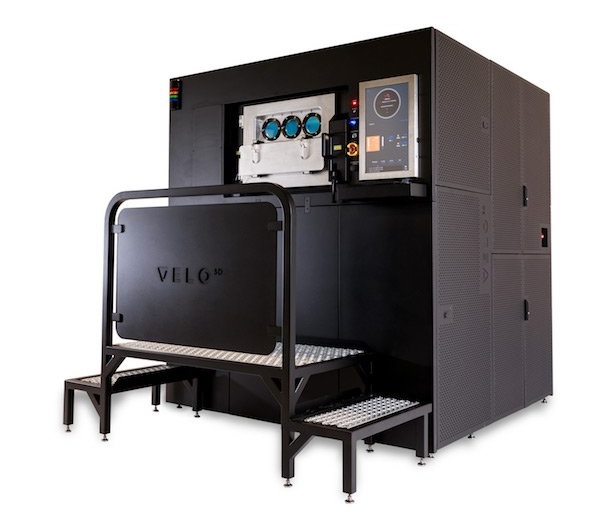VELO3D, a Californian metal 3D printer manufacturer, has announced plans to work with Duncan Machine Products, an Oklahoma-based precision machining company.
As a supplier to oil and gas and aerospace industries, Duncan Machine Products (DMP) will use metal additive manufacturing to both improve part performance and reduce lead times.
DMP has selected VELO3D’s Sapphire printer combined with Flow and Assure software.
Chris Billings, co-owner of DMP, believes that additive manufacturing is essential for future expansion. Billings said, “We chose VELO3D because their Sapphire printer can handle the most geometric complexity, and their support-less process doesn’t require customers to redesign their parts. This will enable us to bid on a larger portfolio of projects. We put VELO3D to the test on a series of customer-driven part-builds and, in the end, it was an easy decision.”
Drilling with metal AM
The precision machining company has already received orders to 3D print at least 1,500 parts for downhole tools used in onshore and offshore oil exploration. DMP expects this number to increase up to ten times in the coming two years. Metal additive manufacturing will be used as an alternative to the traditional method of investment casting. The co-founder added, “The conditions under which downhole tools must perform are hostile and include extreme pressure and high-temperature situations, requiring a robust and dependable manufacturing solution.”
According to Benny Buller, Founder, and CEO of VELO3D, said, “Our SupportFree technology can make highly complex geometries without the burden of post-processing—providing repeatability, process gains, and greater productivity for oilfield service providers.” According to Buller, this makes metal AM a compatible manufacturing process for the oil and gas industry.

3D printing for the Oil & Gas industry
Elsewhere in the Oil & Gas sector, BP is using 3D printing to manufacture components for its petrochemicals business.
In China, Nanfang Additive Manufacturing Technology Co. signed a contract with the state-owned China National Petroleum Corporation (CNPC) Tubular Goods Research Institute (TGRI). The Chinese company intended to investigate whether electron beam manufacturing (EBM) can be used to make components for oil and gas pipelines. The prototype pressure vessel cylinder was made by a combination of metal 3D printing and CNC milling.
In Australia, Aurora Labs has signed a 3D printing certification agreement with global quality assurance and risk management company, DNV GL. The companies’ aim is to develop 3D printed metal parts, suitable for the oil & gas, power, and maritime industries.
Nominations for the 2020 3D Printing Industry Awards are now open. Who do you think should make the shortlists for this year’s show? Have your say now.
For the latest news in additive manufacturing, subscribe to the 3D Printing Industry newsletter. Keep in touch with us by liking our Facebook page and following us on Twitter.
Visit our 3D Printing Jobs site for a selection of roles in the additive manufacturing industry.
Featured Image shows the VELO3D Sapphire System. Photo via VELO3D.


